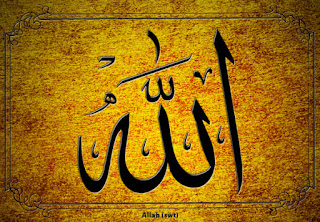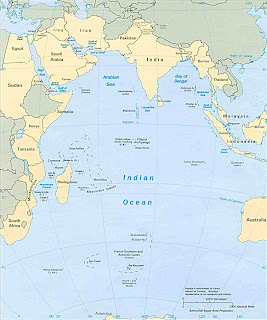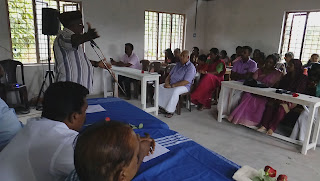The State of Man in Our Times
The
world is developing at breakneck speed. It is constantly modernizing, becoming
smaller and less life-size, becoming closer to people like a round table where
the whole world can reunite and communicate and share their ideas and lives.
But with the race for power and wealth, the rich are getting richer. The poor
are getting poorer. And the world continues to exist until the One Creator
decides otherwise.
Rich
or poor, everyone tries to live in their own way. But how many of us ponder
over what health, recreation, food, and tranquillity cost to the inhabitants of
a country? But above all, how much of their precious time do they devote in
remembrance of the Creator through prayer. The rich have almost no problem in
living their lives quietly. The poor, on the other hand, have to work harder to
try to make ends meet. This class of population of any country will always
remain in poverty with its multiple problems - famine, sickness, housing,
unemployment.
 However,
people, whatever their situation, live. They try to live. Maybe some people
want death because they are crushed by poverty and misery. But life or death
does not depend on us. It is the exclusive prerogative of Allah Ta’ala.
However,
people, whatever their situation, live. They try to live. Maybe some people
want death because they are crushed by poverty and misery. But life or death
does not depend on us. It is the exclusive prerogative of Allah Ta’ala.
But
then why so much worries, so many misfortunes? ... Does Allah Ta’ala, the
Unique Creator, Who knows and controls everything, not love us? Does He not
appreciate our way of life, our way of doing things? Not really, according to a
Hadith of our beloved prophet Hazrat Muhammad (pbuh). It is rather that we
humans, especially those of the Ummah forget too quickly our obligations
to the Creator. So everything turns upside down. When the situation changes,
life becomes destabilized. Stress, anxiety, anger, worry, doubt take place.
A World of Dizzying Inequality
So
why the vast majority of the world’s population lives in poverty and a very
small percentage, being extremely rich controls everything in this temporal
world? Some who feel that they are so powerful because of their fortune, think
they are half-gods. But let it be clear. Rich or poor we always live in the
same fear, the same anguish, the same anxiety.
We
live today in the 21st century, a time of confusion where materialism
(i.e. people with materialistic minds) prevails everywhere, including within
the Ummah. Material comfort is only useful to us here on earth. What
have we prepared for the afterlife? Are we preparing enough for it? Here on
earth, it is total confusion leading to wounded hearts, broken with the
weakened soul.
 We
only have to follow the medical news - to get information about the world of
medicines (pharmaceutical drugs). Scientists only produce drugs of all kinds to
combat stress - the disease of the modern world, to combat anxiety, anger,
nervousness, etc. The medications prescribed which are used in high doses
sometimes have side effects. The situation gets complicated. Whether he is rich
or poor, whether he gets treatment at the private clinic or the public
hospital, the patient does not find the desired happiness or if he gets it, it
is very precarious. He then turn to diabolical, satanic treatments that only
worsen the situation, while there is only an effective remedy, very effective indeed,
freely offered but neglected, forgotten, cast aside: a CALL TO ALLAH TA’ALA.
We
only have to follow the medical news - to get information about the world of
medicines (pharmaceutical drugs). Scientists only produce drugs of all kinds to
combat stress - the disease of the modern world, to combat anxiety, anger,
nervousness, etc. The medications prescribed which are used in high doses
sometimes have side effects. The situation gets complicated. Whether he is rich
or poor, whether he gets treatment at the private clinic or the public
hospital, the patient does not find the desired happiness or if he gets it, it
is very precarious. He then turn to diabolical, satanic treatments that only
worsen the situation, while there is only an effective remedy, very effective indeed,
freely offered but neglected, forgotten, cast aside: a CALL TO ALLAH TA’ALA.
Turn to Your Creator
Yes,
turn to HIM, The Saviour, The Healer, The Protector, The Merciful. He offers
all the remedies. Without fees. Without an appointment. He only asks us one
thing: to think of HIM at all times. He is here to listen to us. All we sick
people have to do is to have unreserved faith and piety. Believe in Him, in His
remedies, in His miracles. Are we ready for this?
 Every year, Mauritius observes a national holiday on February 1st. For, this day marks a defining moment in the collective memory of the Mauritian people's struggle for dignity and human rights. Almost two centuries ago, it was on this day in 1835 that the abominable practice of Slavery was formally abolished in the Island State, liberating a mass of humanity from the clutches of an oppressive social order.
Every year, Mauritius observes a national holiday on February 1st. For, this day marks a defining moment in the collective memory of the Mauritian people's struggle for dignity and human rights. Almost two centuries ago, it was on this day in 1835 that the abominable practice of Slavery was formally abolished in the Island State, liberating a mass of humanity from the clutches of an oppressive social order.  Originally discovered by the Arabs in the 9th century; successively colonized by the different European powers from the 17th
century- the Deutch, the French and the British- in the last four
centuries; modern Mauritius is, in many ways, shaped by this Island
nation's encounter with the different phases of global capitalism and the
trajectories of the European imperial forays into Africa and Asia, including the
strategic control of the Indian Ocean region for safeguarding their vital, commercial
interests. The detachment of a part of the Mauritian territory- the Chagos Archipelago and offering the same on a virtual, perpetual lease to the United States by the last colonial power- Britain- before the granting of national independence to Mauritius in 1968, continue to remind all of us in the global South about the long shadows of imperial hubris that permanently scar the psyche of nations and peoples. (For a review of the continuing Mauritius-UK dispute over the Chagos Archipelago, click here).
Originally discovered by the Arabs in the 9th century; successively colonized by the different European powers from the 17th
century- the Deutch, the French and the British- in the last four
centuries; modern Mauritius is, in many ways, shaped by this Island
nation's encounter with the different phases of global capitalism and the
trajectories of the European imperial forays into Africa and Asia, including the
strategic control of the Indian Ocean region for safeguarding their vital, commercial
interests. The detachment of a part of the Mauritian territory- the Chagos Archipelago and offering the same on a virtual, perpetual lease to the United States by the last colonial power- Britain- before the granting of national independence to Mauritius in 1968, continue to remind all of us in the global South about the long shadows of imperial hubris that permanently scar the psyche of nations and peoples. (For a review of the continuing Mauritius-UK dispute over the Chagos Archipelago, click here).













